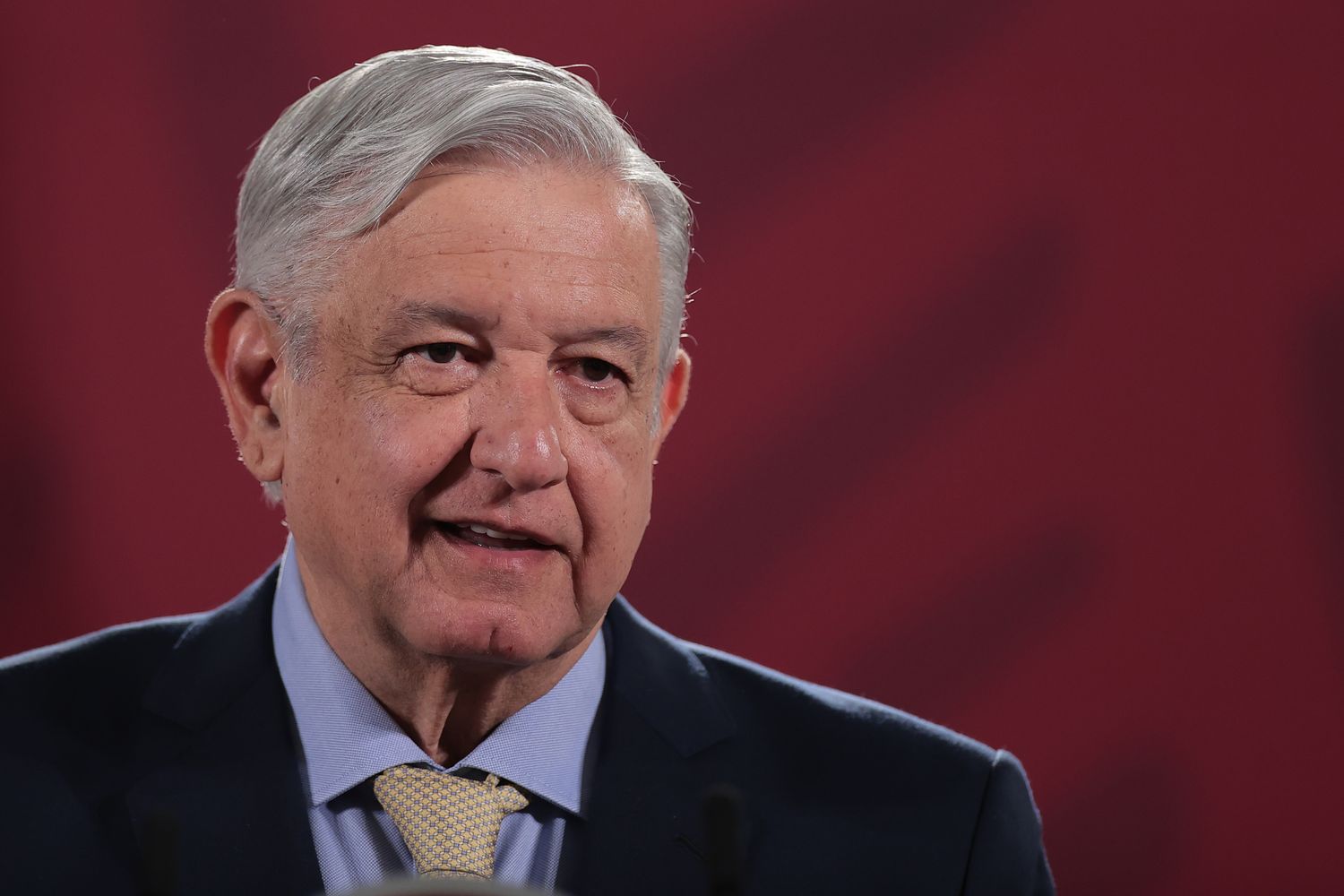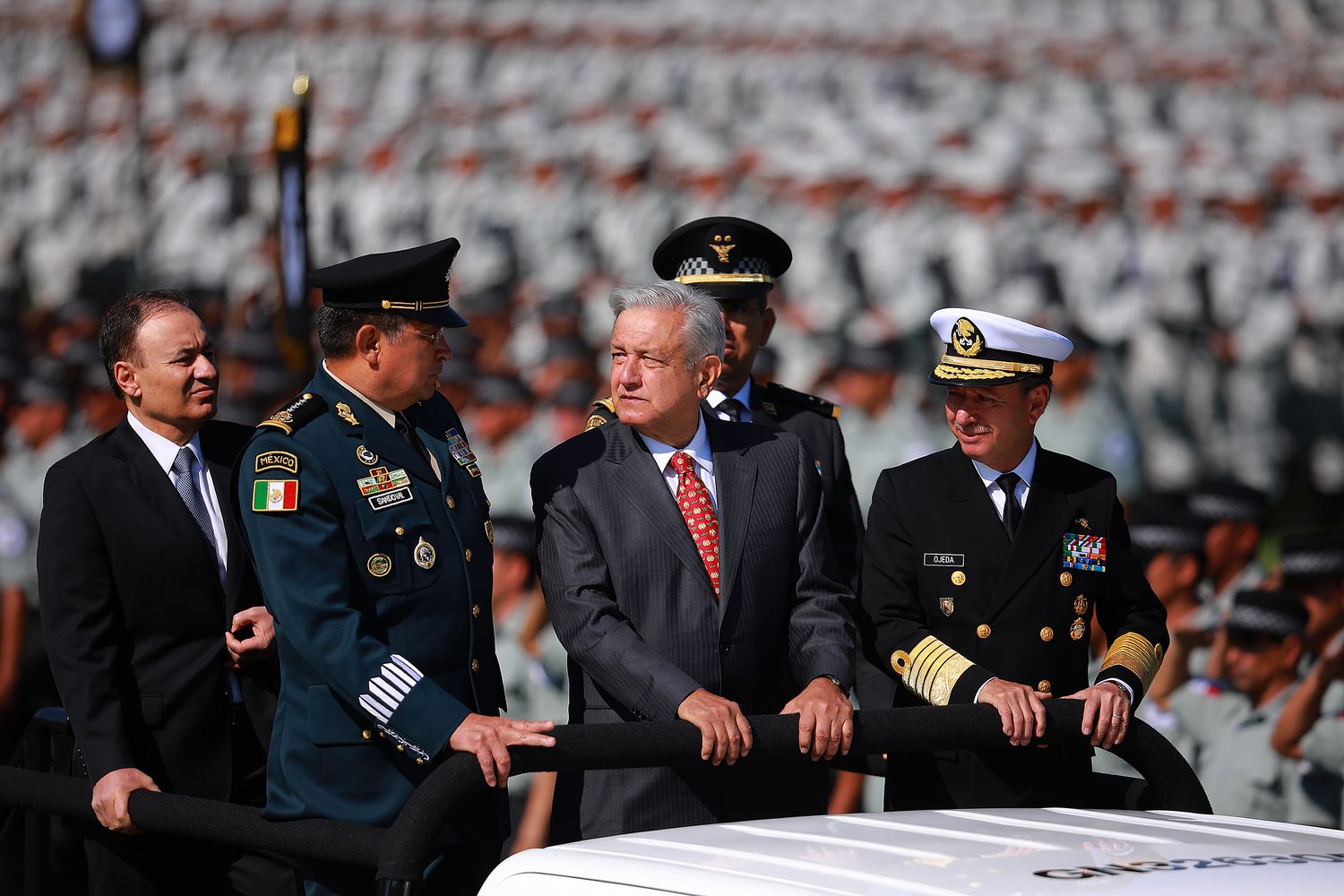
President Donald Trump for years has insulted Mexicans with his promises to build a border wall to keep out migrants, criminals, drugs and, most recently, the coronavirus. But that’s not stopping Mexican President Andrés Manuel López Obrador from heading to the White House for his first face-to-face meeting with Trump on Wednesday.
López Obrador, a lifelong populist and face of Mexico’s left, actually has a lot in common with Trump. They’ve built a relationship based on their respect for each other’s nationalist, authoritarian tendencies and their ability to stay out of each other’s way on domestic issues.
On Wednesday, their unlikely alliance will be on full display as they celebrate the July 1 launch of the new North American trade pact. The meeting gives López Obrador a chance to pitch Mexico as a stable environment for U.S. investment despite its struggling economy. And it gives Trump a chance to show he has Mexico’s leader on his side going into his reelection bid even after all the insults and threats. Plus, he gets to remind his base of the concessions he’s gained from López Obrador to stop asylum seekers from crossing the Mexican border into the U.S.
But their meeting, which marks López Obrador’s first trip abroad since becoming president of Mexico in December 2018, has been the target of widespread criticism in Mexico and among Democrats because of a perception that it benefits Trump politically and its timing as coronavirus cases continue to rise alarmingly in both countries. Democrats are particularly annoyed that López Obrador has not scheduled any meetings with them while he’s in Washington.
For Trump, “Mexico is a political prop. He uses Mexico and Mexicans as a punching bag and I don’t see why he won’t continue to do that for the next four months,” said Mark Feierstein, who served as the Obama administration’s top national security adviser on Latin America. López Obrador has sent the signal to Trump that “you can bully Mexico, you can threaten Mexico, you can call Mexicans rapists and the Mexican president will be happy to get on a plane to meet with you anyway.”
Trump has referred to López Obrador as a leader “who I like and respect, and has worked so well with us.” The Mexican leader has repeatedly said his relationship with Trump is based on mutual respect and recently has been thanking Trump for sending ventilators to Mexico during the pandemic.
Their friendship is all the more surprising because López Obrador, a former Mexico City mayor, ran on a platform to protect and demand respect for Mexicans, as well as focus on domestic issues like corruption and crime — both of which have not decreased in his 19 months in office. López Obrador, known by his initials as AMLO, was previously so critical of Trump that he went so far as to compare the U.S. president’s offensive comments about Mexicans to the way Nazis talked about Jews in his 2017 book called "Oye, Trump" ("Listen Up, Trump").
But last year, Trump succeeded in using the threat of tariffs to ensure Mexico would deploy its National Guard, which was created to fight crime and restore public safety, along Mexico’s southern border to stop Central American migrants from traveling north to seek asylum in the United States. López Obrador also agreed to allow asylum-seekers to remain in Mexico while they wait for their court hearings in the U.S.
Now, critics say López Obrador’s trip is just the latest sign of the Mexican government being nonconfrontational in the hope that it will benefit Mexico by appeasing its powerful northern neighbor. It’s a similar approach to that of his predecessor Enrique Peña Nieto, a moderate establishment politician whose already low popularity took a hit when he welcomed then-candidate Trump to Mexico in 2016.
“Just as Mr. Peña Nieto did, he is betting that he will benefit if he helps Mr. Trump win the Latino vote. But as unjustifiable it was back in 2016, it is also offensive and foolish in 2020, when the entire world has seen and suffered Mr. Trump’s outbursts,” Enrique Krauze, a prominent Mexican historian, wrote in a New York Times op-ed on Sunday.

The U.S.-Mexico relationship is “based on friendship and it’s also an indispensable commercial and economic relationship, so that’s why the trip to the United States,” López Obrador said late last month when he announced the visit.
The meeting is part of the two leaders’ “continued partnership on trade, health, and other issues central to regional prosperity and security” and will recognize the USMCA and “their shared effort to ensure North America continues strengthening its economic ties while working to combat the coronavirus pandemic,” the White House press secretary said in a statement.
But Canadian Prime Minister Justin Trudeau’s office announced he will not be attending the meeting, raising concerns among Democrats that it will serve Trump’s political aims four months before the election.
“What’s the urgency of coming now? Why isn’t Prime Minister Trudeau participating in this meeting? And why didn’t the meeting take place before [USMCA] took effect?” Rep. Chuy García, who represents one of Chicago’s largest Mexican immigrant communities and is a Mexican immigrant, told POLITICO.
“It’s puzzling to Mexican leaders in Mexico and here to think that somehow this trip would be advantageous to Mexico or AMLO because of the means Trump has to exploit the visit and to manipulate it to extract Mexican American and Latino votes through this visit. It’s what a lot of folks find repulsive,” García added.
Last week, more than a dozen members of the Congressional Hispanic Caucus urged Trump to cancel the meeting, calling it “nothing more than an attempt to distract from the coronavirus crisis and your failure to lead an adequate response to the pandemic.”
Still, U.S. business leaders are hopeful López Obrador will use the trip to show that Mexico wants U.S. investment and will offer a better environment for it. The Mexican leader has alarmed investors worldwide with his moves to abruptly cancel major projects, like a partly built airport and brewery, where billions of dollars had already been spent.
“After 18 months of uneven decision making by the Mexican government that has shaken investor confidence, the visit marks a pivotal opportunity for AMLO to ensure U.S. stakeholders that Mexico is committed to upholding its USMCA obligations and to ensure a sound predictable investment environment moving forward,” said Neil Herrington, the U.S. Chamber of Commerce’s senior vice president for the Americas.
The Oval Office sit-down poses a risk for both leaders, neither of whom has embraced wearing face masks and who recently have resumed traveling across their respective countries for events. The Mexican leader is also coming on a commercial flight with layovers to Washington, raising further health concerns.
Coronavirus cases in the U.S. are still spiking as the nation has seen more than 130,000 deaths and 3 million confirmed infections. Mexico is also in bad shape as the country with the fifth-highest number of deaths — more than 31,000 — due to the coronavirus and more than 250,000 confirmed cases, figures widely thought to be underreported.
Their willingness to meet in the middle of a pandemic is a reminder of their similarities, even if they identify with different sides of the political spectrum.
Both leaders maintain a contentious relationship with the media. López Obrador has railed against major outlets like Mexican newspaper Reforma for what he says is unfair or fake reporting in a similar manner as Trump.
López Obrador has often repeated his philosophy that “the best foreign policy is domestic policy,” as he tries to steer clear from getting involved on the world stage. That’s made it all the more surprising that his first trip abroad is to the United States. But López Obrador’s nationalist attitude and focus on domestic issues is not unfamiliar in the United States, as Trump, too, has pressed for an America First agenda throughout his presidency.
“I think they genuinely want each other as president because neither one cares about the other,” said Jorge Guajardo, a former Mexican ambassador to China and senior director at McLarty Associates. “Trump doesn’t want to get involved in Mexico and López Obrador doesn’t want to get involved with the United States. The less they have to talk about each other, the better.”
Source: politico.com
See more here: news365.stream






